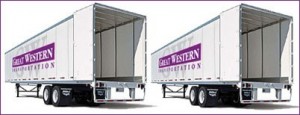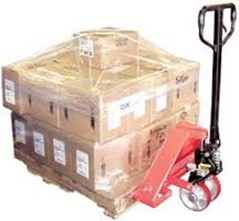How LTL Trucking Works
LTL shipping pertains to the transportation of small volumes of goods weighing between 151 and 20,000 pounds. This transportation option is for shippers who have to send loads that don’t need a Full-Truckload service. LTL shipments are normally combined with other shipments to create a full load. LTL carriers move goods in one truck, providing shippers with the flexibility to plan the transport of products to coincide with their customers’ requirements.
Each shipment in the truck is inspected and weighed to ensure that it matches what the paperwork says about it. The goods are then reloaded to the carrier’s truck. The LTL trucking job can be handled once or several times before reaching its designated location.
Benefits of LTL Trucking
Cost Savings
The cost spent on LTL shipping is usually lower compared to Full-Truckload shipping. As the weight is less than the full truckload, the amount you pay is also lower. You only have to pay for the cost of the products’ weight and space on the truck. The density of the goods also plays an important role in determining the cost of shipment. Bulky low-weight goods are more expensive to transport, while products that occupy a lower volume for the same load are qualified for discounted rates.
LTL Freight Transportation Software
Freight transportation software improves the delivery system. The delivery system is normally focused on assimilating the procedures and systems of the company, leading to faster delivery time and reduced shipping costs.
Simplified Inventory Requirements and Lower Risk of Damage
With LTL shipping, the inventory requirements are streamlined and the risk of damage during transportation is reduced. Fewer units are transported due to the increased volume per shipping load or per package.
Lower Trucking Rates
LTL carriers offer lower trucking rates as they don’t need to pay the high tolls of parcel carriers. Compared to parcel carriers, LTL carriers offer lower rates per pound. Freight rates also depend on destination or pick-up zip codes or also known as “lanes.” Carriers who want to secure business for a certain lane may provide better rates. Those who have enough freight in that lane would most likely charge a higher amount.
Shippers who need to regularly transport goods that fall into different classifications can talk to their local LTL carrier for a Freight All Kinds (FAK) arrangement. This will provide them with a common classification for all the products they transport and allow them to save a lot of money.
LTL shipping is also beneficial for trucking companies as their businesses can be extended even to smaller organizations. Before, the only way for companies to transport their goods was to rent private trucks or send it through parcel carriers.
Using LTL shipping services is the perfect option for those with smaller loads as they can save a significant amount of money and deliver their goods faster to their customers.







